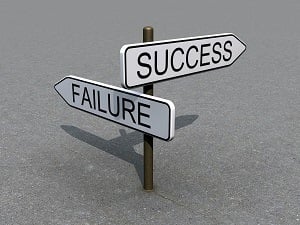Today’s world is difficult enough to navigate while finding true happiness. When you add in another person’s or group’s ideals about how you should live your life or what defines success and happiness, it sometimes seems nearly impossible. The urge to measure oneself by what someone else is doing, like one’s favorite rap star, writer or football player, can be overwhelming. The problem is this is a false ideal that actually leads more often to misery than to happiness. There’s always that artificial, built-in need to prove oneself to one’s boss, spouse, family, and so on.
The good news is that you can break out of this cycle and define happiness and success according to what’s right for you. You may catch some grief for it and it may not always be a comfortable journey, but you can use these eight reasons you have nothing to prove to anyone as a sorting screen to choose how you want to live your life.
1. You should judge your success by your own standards.
In modern society, we’ve come to a highly artificial view of what success looks like. Reality TV has only bolstered these ideals, celebrating public opinion more than who has the most technical skill or proficiency. Instead of judging your life by the mass media rubric, decide what really matters to you and go for it. Even if it doesn’t work out, you will be a success by the only standard that matters—your own.
2. Your value is not judged by external validation.
We’d all love to set a world record, make the New York Times bestseller list, be at the top of the Fortune 100, or become the next American (Australian, British, whatever) Idol. However, these kinds of validation are external and often flawed. The best kind of success is the kind you find on your own. If you count kindness, charity, wisdom, and justice higher than money and property in your personal value scheme and live up to those ideals as often and as best you can, then your internal value is the only one that makes a difference.
3. You cannot expect to please everyone.
Abraham Lincoln once quipped, “You can please all of the people some of the time, and you can please some of the people all of the time, but you can’t please all the people all the time.” We have a cultural horror and fear of letting anyone down, ever. As a result, we take on too many tasks and make too many commitments with the end result that some of these are going to have to go by the wayside. It is acceptable to say no on occasion, especially when you’re making time for the people who really matter the most to you at the end of the day.
4. You are doing fine as long as you’re giving your personal best.
We are afraid to fail. We hate the idea of coming in “second best” to an arbitrary standard. B students long for As, while baseball players who bat a .350 for the season wish they’d made a .400. It is natural to want to do better, but if you can look at a completed task or objective and honestly say you gave it everything you had, you’re living up to your own highest ideals. Be proud of that!
5. You know what’s best for you.
The people who care about us often batter us with well-meaning but unsolicited or incorrectly gauged advice. “You should take that job at _______, because it pays $10,000 more a year and you’ll be happier.” “You should get a bigger house in __________, because your family’s growing and you’ll be happier.” What these people really mean is, “I want to be happier for you, so you should take my advice and you will be happier for you as well.” This kind of sentiment creates an awkward position. We don’t want to be unkind, but we also want to stand our ground. Being able to say “I’m fine where I’m at” is a gentle way of saying you have nothing to prove to anyone, while still acknowledging the other party’s intentions and hopes for you.
6. You know better than anyone else what you are capable of.
People tend to judge others by statistics and files, not by individual ability. This can be frustrating when you’re trying to do more than “the norm” and hearing how it’s impossible. You are the only one who can judge your capabilities and potential effectively. After all, you know more about you than anyone else possibly can. Part of having nothing to prove is the willingness to prove it, even when the only person you’re proving it to is yourself.
7. You have the right to define happiness on your own terms.
Happiness means something different to everyone. I define happiness in terms of reader reviews and financial security. A plumber may define happiness in terms of how many sinks and toilets she or he unclogged today. Everyone views happiness differently, and it’s up to you to determine what happiness looks like to you. Knowing what makes you happy will in turn make you happier and better able to make others happy.
8. Do the things that satisfy you.
If you can’t make everyone happy, you should at least be able to be happy yourself. Albert Einstein said, “The definition of insanity is repeating the same action expecting a different outcome.” You should be able to look back at the end of each day, week, month, or year and say, “I did my absolute best with everything I attempted, and I can be content with that.” Of course, you should always seek to improve, but be modestly proud of your achievements and successes. Satisfaction is really just happiness when a task you take pride in is done and done well.
Of course, none of this means you should not take into account the happiness of your spouse or the people around you. You should never be so self-absorbed in the pursuit of your personal happiness that you cause misery to others. Part of being a happy person is being able to spread the wealth. If you cannot do this, you cannot be a truly happy person.
So, how do you define happiness? I’d love to hear your thoughts!
















































